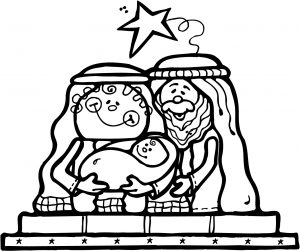For January 16, 2022
A wonderful illustration of our redemption is presented in the Suffering Servant found in Isaiah 53:4-6 (NKJV):
Surely He has borne our griefs and carried our sorrows; Yet we esteemed  Him stricken, Smitten by God, and afflicted. But He was wounded for our transgressions, He was bruised for our iniquities; The chastisement for our peace was upon Him, And by His stripes we are healed. All we like sheep have gone astray; We have turned, every one, to his own way; And the Lord has laid on Him the iniquity of us all.
Him stricken, Smitten by God, and afflicted. But He was wounded for our transgressions, He was bruised for our iniquities; The chastisement for our peace was upon Him, And by His stripes we are healed. All we like sheep have gone astray; We have turned, every one, to his own way; And the Lord has laid on Him the iniquity of us all.
Matthew Chapter 9 tells the story of a paralyzed man whose friends brought him to Jesus for healing. Jesus makes this statement in verse 2 (NLT):
Be encouraged, my child! Your sins are forgiven.
Then He makes this declaration in verse 6 (NLT):
So I will prove to you that the Son of Man has the authority on earth to forgive sins. Then Jesus turned to the paralyzed man and said, Stand up, pick up your mat, and go home.
No human being can forgive sin. We consider anyone making this claim to be blasphemous, since only God can forgive sin. Yet, Jesus insists that He forgives all our sin—past, present, and future. He claims this because He is the One who satisfies all the statutes of the Old Testament Law as the perfect sacrifice for our sin.
While Mary was carrying Jesus inside her, Joseph, her espoused husband, sought to release her secretly to avoid scandal and humiliation as an unwed mother. She had not known a man, but she would be delivering a child soon. Then the Angel of the Lord appeared to Joseph in a dream saying,
Joseph son of David, do not be afraid to take Mary home as your wife, because what is conceived in her is from the Holy Spirit. She will give birth to a son, and you are to give him the name Jesus, because he will save his people from their sins. Matthew 1:20-21 (NIV)
Jesus Christ is the Prophet, whose life and teaching give us moral and spiritual direction as foretold by Moses in Deuteronomy 18:15-22. We find His Word contained in the Bible, which is our perfect guide to living in this New Testament Age. As we read, study, memorize, and apply its principles to our lives, we grow into His productive people of faith and grace.
Jesus is our King, who governs our hearts and minds through His Holy Spirit (and His Word). We love Him, willingly surrender to Him, and faithfully serve His church and those He describes as the “least of these” (Matthew 25:34-40). He is our Sovereign Lord, and we are subjects of His eternal Kingdom. He is the focal point of our love and gratitude as well as the author and finisher of our faith (Hebrews 12:2).
He is our Great High Priest, in whom we have the forgiveness of sin. Hebrews 9:11-12 teaches He redeemed us by paying sin’s price Himself,
But Christ came as High Priest of the good things to come…Not with the blood of goats and calves, but with His own blood He entered the Most Holy Place once for all, having obtained eternal redemption.
Jesus’ sacrificial death at Calvary covers our sin because He is the Lamb of God who takes away the sins of the world (John 1:29).
He is fully capable of saving “to the uttermost” all those who come to God by Him, seeing He lives forever to make intercession for us (Hebrews 7:25). Give Him your life today so He can forgive your sin and make you a new creature. You won’t regret it!
What a Wonderful Savior!


 burning with fire, and as he approached this miraculous sight, he heard God’s voice,
burning with fire, and as he approached this miraculous sight, he heard God’s voice, the years since our Savior’s birth reminds us that He remains most greatest and most influential person in human history,
the years since our Savior’s birth reminds us that He remains most greatest and most influential person in human history, Now there were in the same country shepherds living out in the fields, keeping watch over their flock by night. And behold, an angel of the Lord stood before them, and the glory of the Lord shone around them, and they were greatly afraid.
Now there were in the same country shepherds living out in the fields, keeping watch over their flock by night. And behold, an angel of the Lord stood before them, and the glory of the Lord shone around them, and they were greatly afraid. will be upon His shoulder. And His name will be called Wonderful, Counselor, Mighty God, Everlasting Father, Prince of Peace. Isaiah 9:6 (NKJV)
will be upon His shoulder. And His name will be called Wonderful, Counselor, Mighty God, Everlasting Father, Prince of Peace. Isaiah 9:6 (NKJV)